Li Yi Visits CUEB for Lecture on Capital Development in New Era
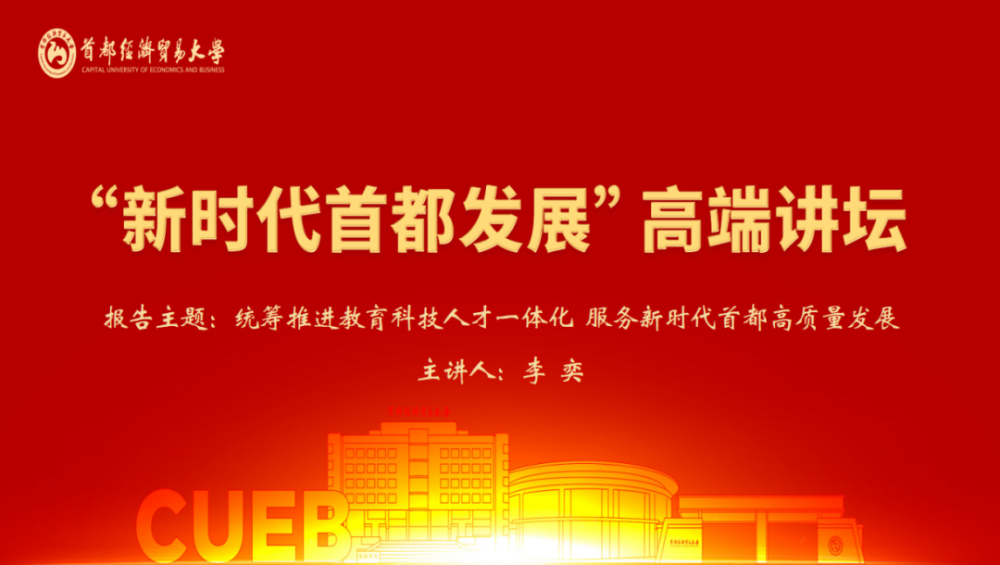
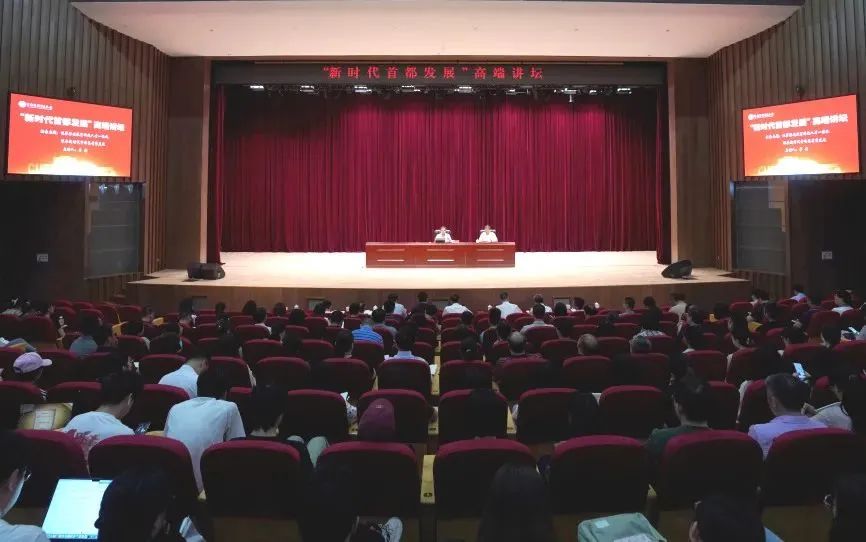
On the afternoon of July 5, the third session of the high-level lecture series themed “Capital Development in the New Era” was held at Zhuoyu Auditorium in CUEB. Li Yi, Deputy Secretary of the Education Work Committee of the Beijing Municipal Committee of the CPC and Director of the Beijing Municipal Education Commission, delivered the keynote speech. The lecture was presided over by Wu Weixing, Deputy Party Secretary and President of CUEB.
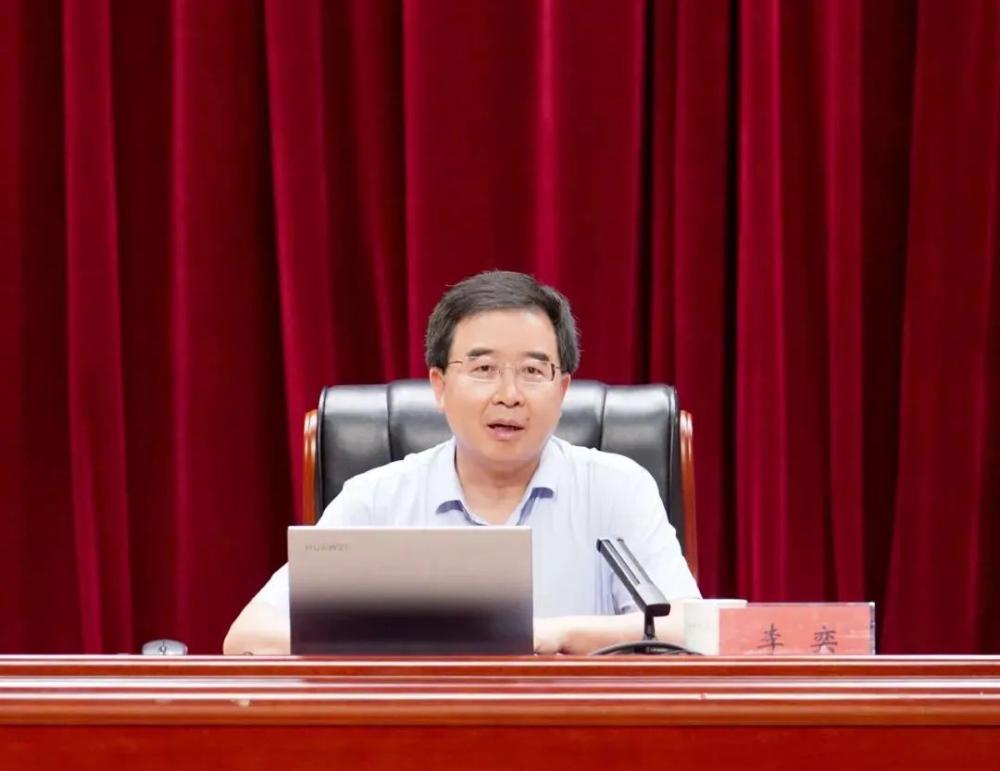
President Xi Jinping has emphasized that “To build China into a country strong on education, we should prioritize the development of higher education; serving high-quality development should be a key task in this endeavor.” Xi also stated, “Developing new quality productive forces is an intrinsic requirement and a key focus for promoting high-quality development. We must continue to excel in innovation to accelerate the development of new quality productive forces.” Given these guidelines, how should we assess the development of higher education in the capital? What role can municipal universities play in this process, and how can they seize the opportunities presented by this pivotal period for educational advancement? Li Yi addressed these questions in his insightful lecture titled “Coordinating Education, Science, and Talent to Serve High-Quality Development in the New Era”.
At the beginning, we need to deeply understand the goals and requirements of building a strong educational nation and focus on the key tasks for the capital’s development in the new era. The specific steps are as follows: First, higher education is crucial in this mission, as it is responsible for cultivating high-level personnel and driving innovation. It acts as a significant engine for promoting talent cultivation at home, sci-tech self-reliance and strength, and innovation-driven growth.Second, developing the capital in the new era requires an integrated approach to education, science, and talent. This integration is essential to accelerating the formation of new productive forces. We must enhance our ability to drive development through innovation, achieve breakthroughs in building major global scientific centers and innovation hubs, and actively promote high-end industries. This will help us take the lead in constructing a modern industrial system with greater international competitiveness, guide and create new demand through high-quality supply, and continuously generate new highlights in investment and consumption. Strengthening innovation and reinforcing industrial chains will also advance the coordinated development of the Beijing-Tianjin-Hebei region to new heights.Third, we need to consider what kind of municipal universities we want to build and how to build them. Municipal universities must find their unique roles within the global, national, and local contexts to accelerate their educational progress. This involves developing distinctive disciplines and specialties that set them apart, thereby contributing effectively to the broader goal of building a strong educational nation.
Next, we need to deepen comprehensive reform and adjust measures to the actual situations, so as to achieve diversified development in the features of higher education. The specific steps are as follows: First, gguided by problem orientation, goal orientation, and result orientation to stimulate elements and resources for high quality development. Problem orientation means that attention should be given to issues such as homogeneous development, inefficient resource allocation, and redundant construction. In addition, governance systems and mechanisms need further improvement to promote innovative and optimal allocation of factors of production. Goal orientation means that we should focus on cultivating much-needed personnel for developing new quality productive forces, thus enhancing the capability to serve national and regional economic and social development. Also, reforms need to be advanced in education methods, research paradigms, school-running models, and governance systems. Result orientation requires us to concentrate on innovative reforms in internal management systems to make institutional collaboration more efficient.Second, focus on major social issues and practical needs of the capital. It is essential to find new development impetus against the background of reduced development. Third, promote differentiated development of municipal universities by further clarifying positioning, optimizing layouts, and creating new ideas, which provides high-quality services for the economic and social development of the capital.
Last, to develop new quality productive forces in higher education, we need to strengthen the following “four organized efforts”: First, enhance organized discipline construction, adjust disciplines to meet the needs of developing new quality productive forces. The Beijing Municipal Education Commission and Working Committee double efforts to advance the construction of emerging interdisciplinary platforms and deepen classified development reforms, guiding municipal universities to develop distinct characteristics in different fields and directions. In addition, it’s important to develop new interdisciplinary construction mechanisms based on real tasks under service orientation. Second, strengthen organized personnel cultivation and establish a globally competitive system for independent personnel development. The Beijing Municipal Education Commission and Working Committee focus on restructuring curriculum quality elements and cultivating top-notch innovative personnel to advance innovative reforms in higher education in a systematic and comprehensive way, and fully enhance the capacity of organized independent personnel cultivation. More importantly, we need to think out of the box and reform cultivation models to cultivate more innovative personnel. In this context, we need to develop the digital skills of teachers and students to explore new paradigms for teaching and learning in the era of artificial intelligence. Third, enhance organized research and integrate university research innovation into economic and social development. In adherence to problem orientation, we need to change the basis of research layout to make “research subjects” more organized. Persisting in multi-party collaborative cooperation, it’s important to develop new review organization and management methods to make “research processes” more organized. Furthermore, there is a necessity to promote people-oriented innovation and implement “phased assessments” to make “research methods” more organized. Fourth, improve organized service by actively integrating into and serving the new development pattern to promote high-quality development. Li Yiqiang emphasized that universities serve as a key force in nurturing high-quality innovative personnel, cultivating new quality productive forces, and achieving self-reliance in high-level science and technology. In a sense, besides the transformation of scientific and technological achievements, personnel cultivation can be seen as the greatest achievement transformation of universities.
At the end of the report, Li encouraged faculties and students to uphold the “camel spirit” and keep in mind the school motto “Advocate Morality, Value Competence, Strategize National Development, and Serve the People”. He encouraged everyone to work under the leadership of CUEB Party Committee to jointly write a new chapter in CUEB’s high-quality development, and make contributions to building a strong educational system and serving the capital in the new era.
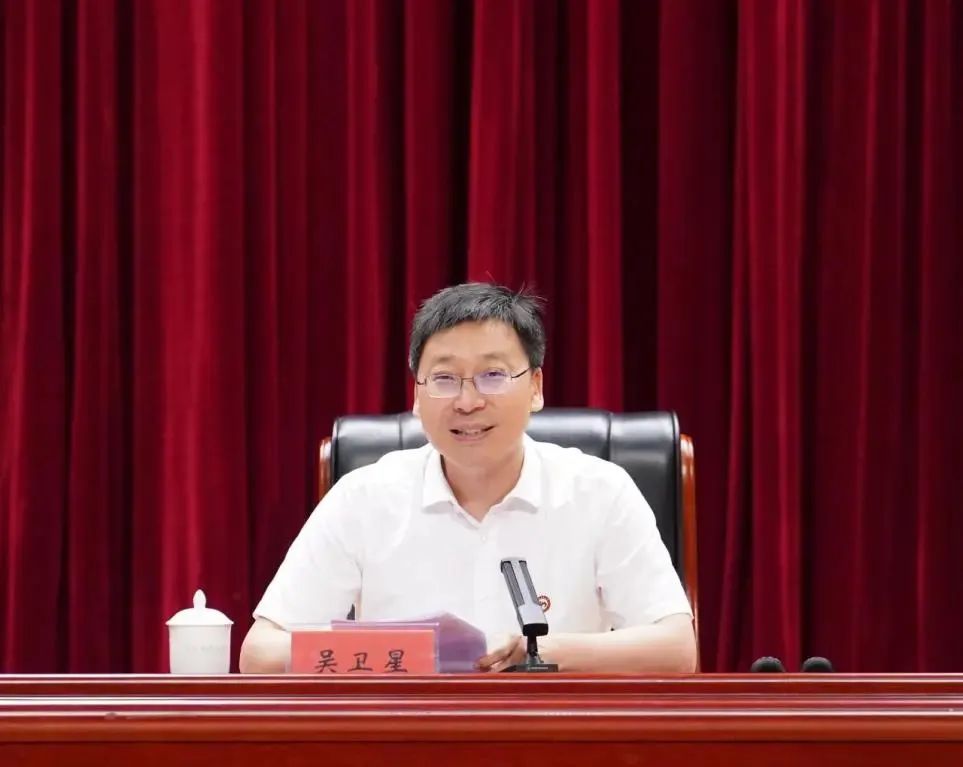
Wu expressed sincere gratitude to Li for his presence, highlighting CUEB’s achievements in personnel cultivation and scientific research since the 5th Party Congress of CUEB, with its focus on serving Chinese modernization and the capital development in the new era. He also acknowledged the current challenges and praised Li’s detailed interpretation of the development trend of higher education in Beijing and guide for digital and intelligent transformation in personnel cultivation to serve the development of the capital and the country for high-quality development. In the future, CUEB will continue to serve the capital and accelerate the construction of China’s first-class and world-renowned university of finance and economics with distinctive features.
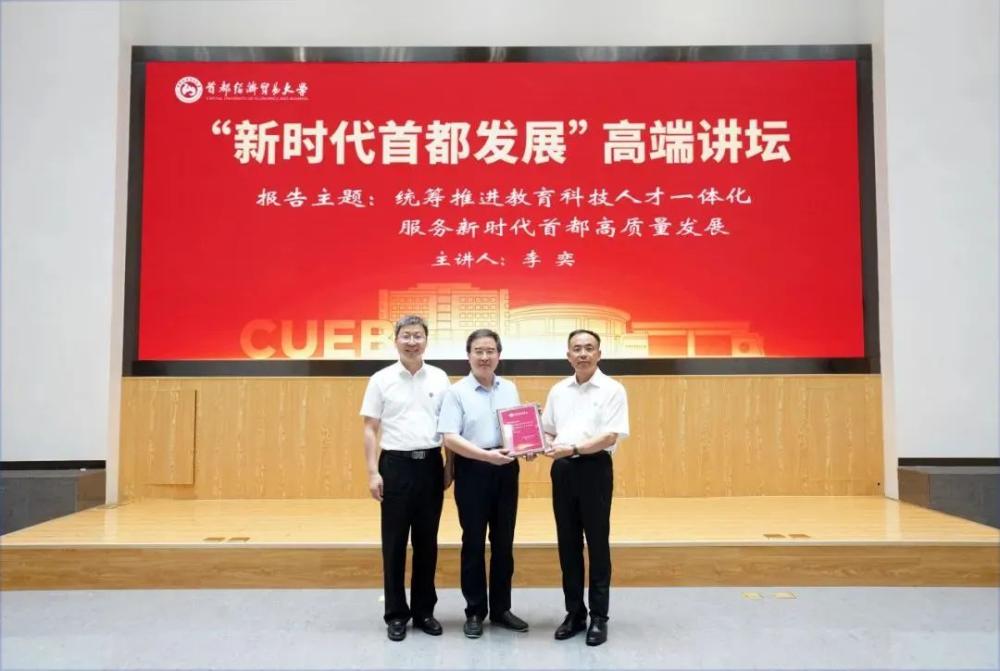
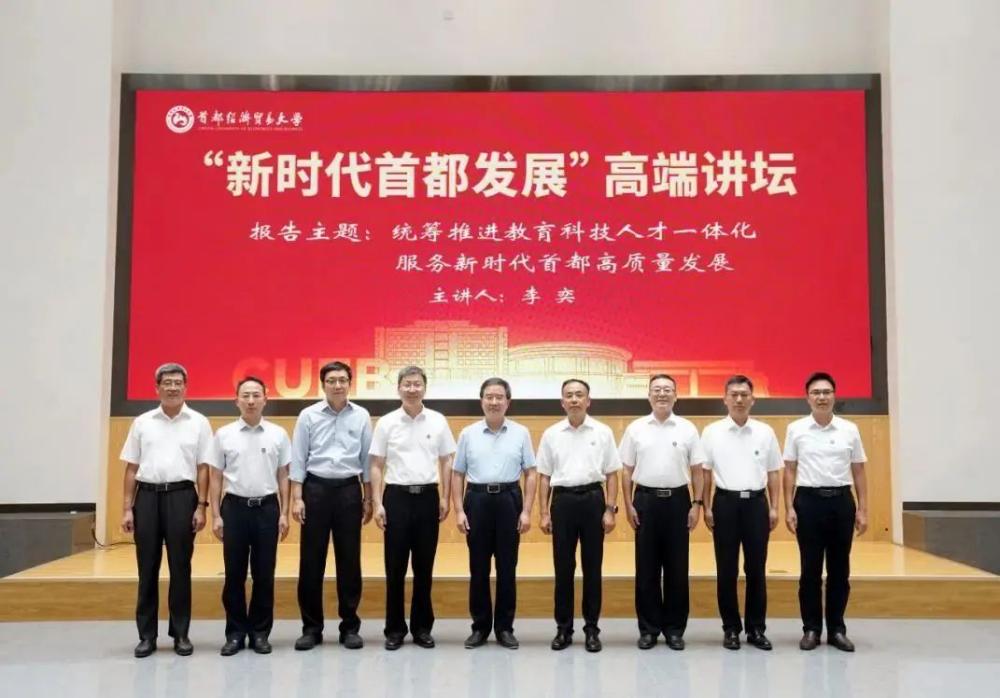
This forum serves as an important platform for CUEB to consolidate the results of themed education, study and implement Xi Jinping’s Thought on Socialism with Chinese Characteristics for a New Era, and further implement the spirit of the 20th National Congress of the Communist Party of China and of the 13th Beijing Municipal Congress of the Communist Party of China. It aims to better serve the national strategy and capital development in the new era.
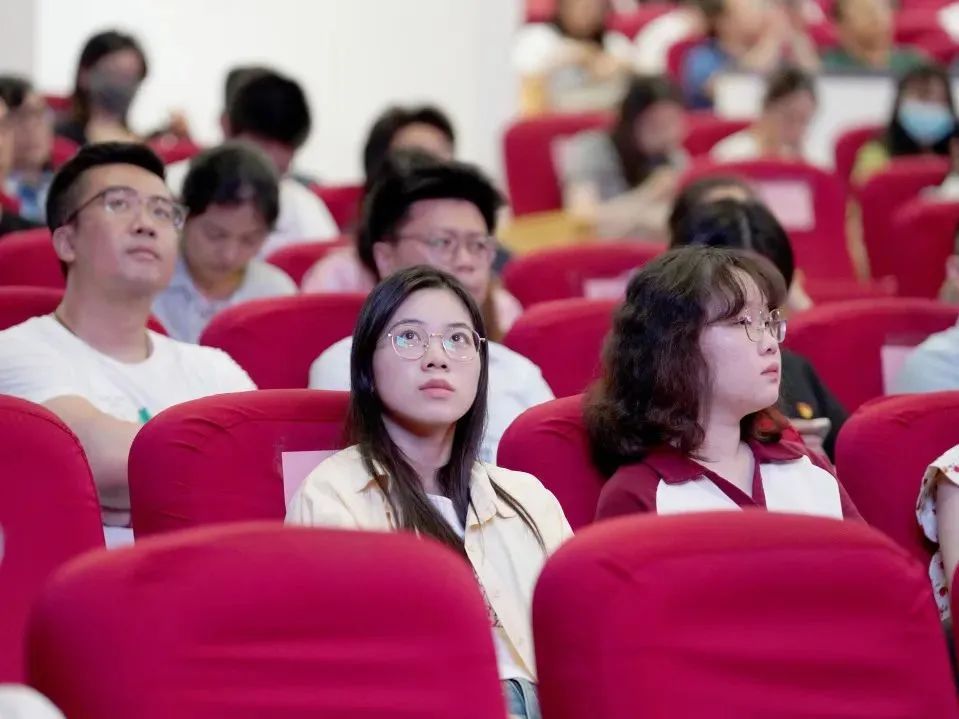
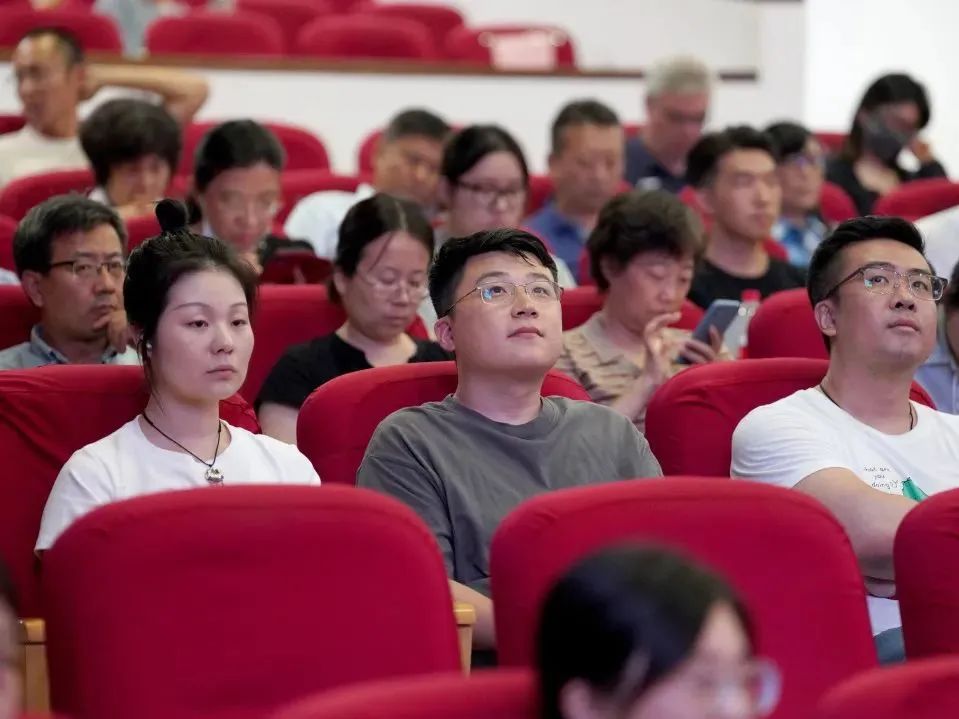
Attendees included Li Shanting, Director of the Personnel Department and Scientific Research Department of the Beijing Municipal Education Commission; Wang Wenju, Secretary of CUEB Party Committee; Li Xiaomu, Vice President; Mao Baizhan, Member of the Standing Committee of the Party Committee and Secretary of Discipline Inspection Commission; Yin Zhichao, Yao Linxiu, Chen Yanbin and Li Kunpeng, members of the Standing Committee of the Party Committee and Vice Presidents; Zhao Guang, Director of the Organization Department and United Front Work Division of the Party Committee; Fu Lin, Minister of the Party Committee Publicity Department and Member of the Standing Committee of the Party Committee, as well as all cadres at department level, principal investigators, high-level personnel, secretaries of the Teachers’ Party Branch and representatives of teachers and students.
